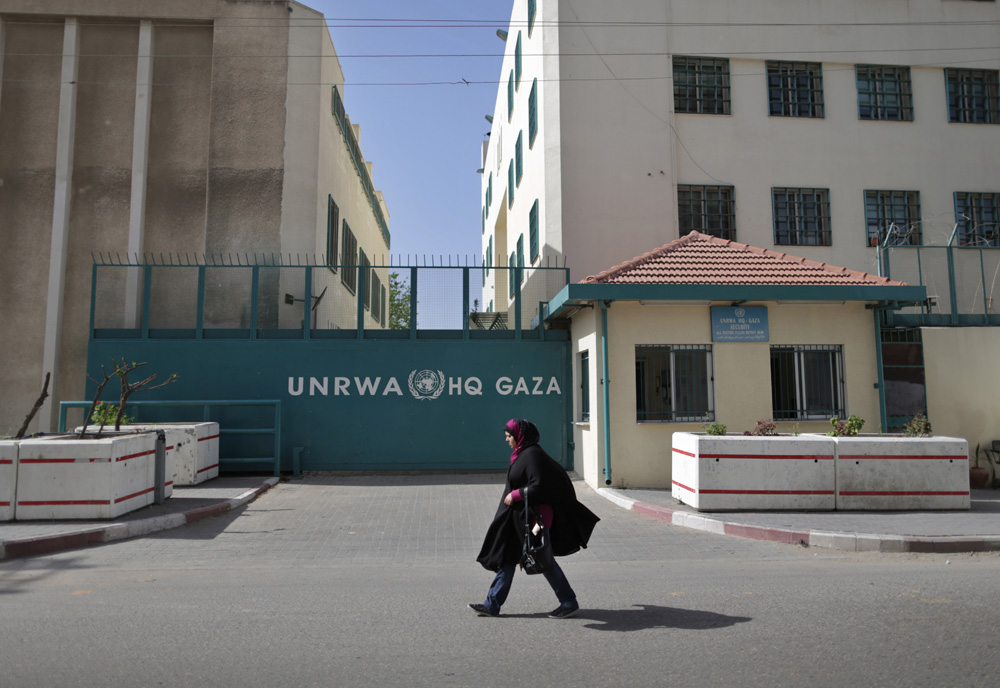Australia/Israel Review
Editorial: The UNRWA Problem
Jun 28, 2017 | Colin Rubenstein

Colin Rubenstein
Israeli Prime Minister Binyamin Netanyahu made headlines in June when he told visiting US Ambassador to the UN Nikki Haley that the United Nations Relief and Works Agency for Palestine Refugees in the Near East (UNRWA) should be disbanded.
“I regret that UNRWA, to a large degree, by its very existence, perpetuates – and does not solve – the Palestinian refugee problem,” he said.
“Therefore, the time has come to disband UNRWA and integrate it into the UNHCR [the UN body responsible for all other refugees].”
While it’s true that any such move is extremely unlikely given that it would require approval by the UN General Assembly, Netanyahu’s concerns about the organisation are well justified and the US should take his lead to push for an intensive review and top-down reform of the body.
Netanyahu’s call represents a change in Israeli policy – successive Israeli governments have generally avoided calling for UNRWA’s abolition, despite the group’s negative influences, because they also valued the health, education and welfare services it provided to Palestinians.
UNRWA, created in the aftermath of Israel’s existential victory in the 1948 war, was formed with modest and sensible goals. Simply stated, those goals were to provide emergency aid to all needy refugees of that war with an eye to gradually decreasing the need for aid to the participants through job creation, resettlement and regional cooperation.
The organisation didn’t discriminate, and it may come as a surprise for some to learn that in the early days of UNRWA, it operated inside Israel, and aid recipients included Jewish refugees of the war who had previously lived in areas conquered by Jordan and Egypt.
That period didn’t last long. Israel quickly absorbed its internally displaced Arab and Jewish refugees, taking them off UNRWA’s rolls, while UNRWA increasingly entrenched itself in the West Bank, Gaza, Jordan, Lebanon and Syria.
In a 2009 policy paper, Attorney James G. Lindsay, General Counsel for UNRWA from 2002-2007, succinctly described the organisation’s transformation as follows:
“Gradually, UNRWA segued from an organisation that supplied only emergency relief to one that provided governmental and developmental services in areas such as education, health, welfare, microfinance, and urban planning. Along with the obvious changes in function, several other processes or ‘themes’ stand out in UNRWA’s history: the incomplete shift from status based aid to need-based aid… the gradual assumption of a mission to enhance the political and humanitarian rights for refugees and Palestinians in general; and the immense increase in the number of persons considered refugees entitled to UNRWA services.”
Lindsay’s last two points have special significance, and they are related. UNRWA became an advocacy organisation for the political goals of Palestinian Arabs and, at the same time, expanded its definition of Palestinian refugee identity to include all the descendants of the original refugees, be it second, third or fourth generation.
The organisation that originally served, according to its own estimates, 760,000 needy and stateless Palestinian Arab refugees today considers five million Palestinians to be under its mandate, regardless of means-tested needs or even the fact many of these “refugees” hold citizenship elsewhere, like Jordan. Meanwhile, UNRWA’s mandate to resettle these refugees was removed in 1965, formalising a perpetual state of Palestinian dependency on the organisation.
Today’s UNRWA is not only invested in the political narrative of Palestinians in their conflict with Israel, but to Palestinian intransigence and rejectionism in its most virulent forms, especially in regard to the so-called Palestinian “right of return” to pre-state Israel, which is taught as part of UNRWA’s curriculum in its schools.
Any two-state peace outcome will require compromise on this issue, but UNRWA, through its barely-veiled advocacy for the “right of return”, makes it harder for Palestinian leaders to develop the popular support to do so.
UNRWA employs over 30,000 people, almost all of them local Palestinians, and derives its income largely from Western governments, especially the US and EU. Yet the group lacks independent oversight to ensure it is not being exploited by Palestinian militant groups as cover for their operations, particularly in Gaza.
This blurring of lines has led to several public embarrassments for UNRWA, including the discovery of Hamas weapon caches in UNRWA schools twice during the 2014 Gaza War, and attack tunnels under an UNRWA school this June.
In February, two senior UNRWA employees were elected to Hamas’ highest leadership body in Gaza. UNRWA distanced itself from them only after a group monitoring Palestinian terror groups publicised this news.
In the West Bank and elsewhere, teachers in UNRWA schools have been exposed spreading vicious pro-violence and antisemitic propaganda on Facebook and Twitter in a pattern that has become routine.
When it comes to the activities of UNRWA, the adage applies: If you’re not part of the solution, you’re part of the problem. UNRWA’s institutionalised perpetuation of Palestinian refugee camps and culture in all its trappings and manifestations makes peacemaking more difficult and deprives generations of Palestinians who were not refugees themselves but were unlucky enough to have been born into the conflict the right of all other refugees everywhere to choose their own destiny. It does so at an unsustainable level for the mostly Western countries that financially support the organisation, and, crucially, at the political expense of Palestinian moderates.
UNRWA is part of the problem – not just for Israel, but for all those who genuinely seek to improve the lives of Palestinians.
Netanyahu’s comments about UNRWA take place under the backdrop of small yet encouraging developments at the UN. Under US pressure, and under new UN leadership, the UN has this year begun to show some willingness to address some of the anti-Israel bias pervasive in UN institutions. While it’s a good start, changes to UNRWA must be an important part of that necessary and long overdue overall reform process.
Tags: Israel






